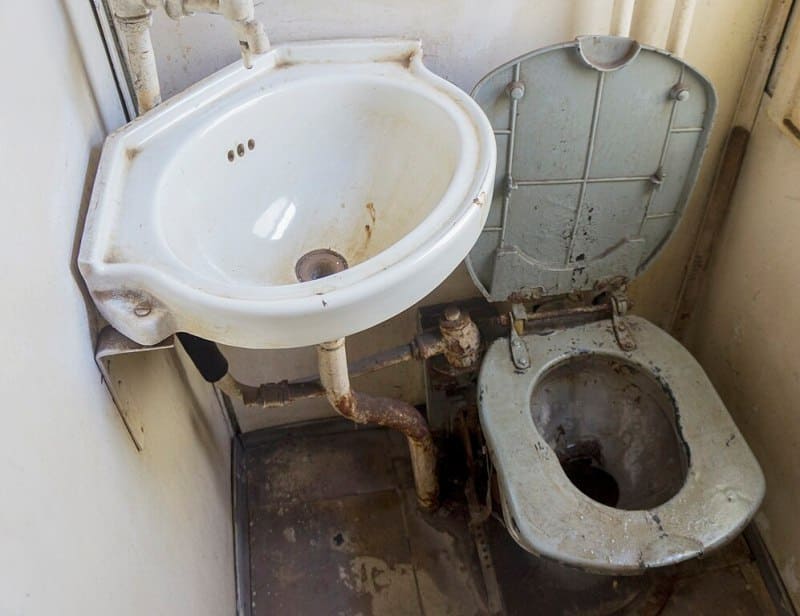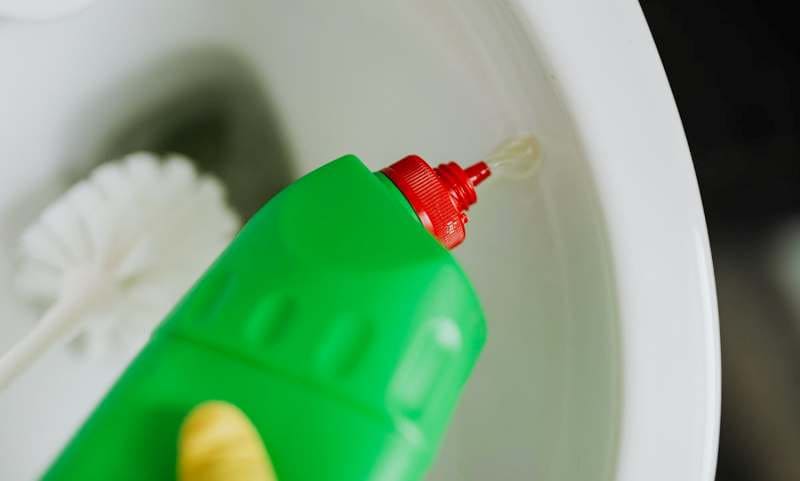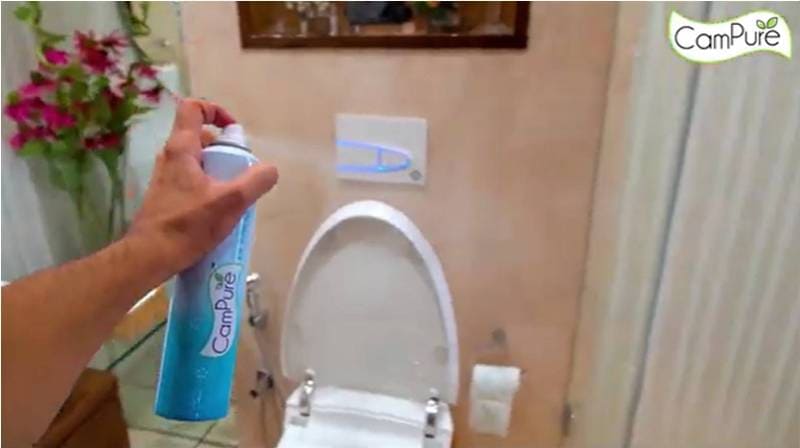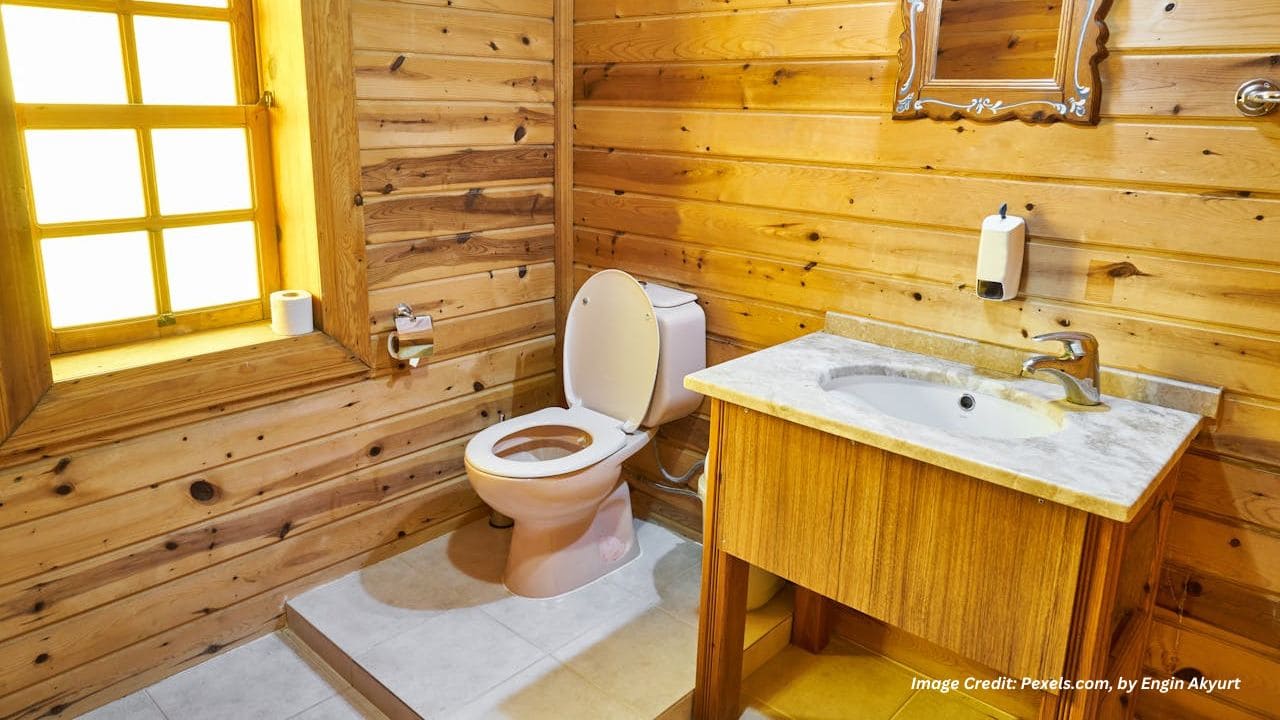Why mosquitoes lay eggs in toilet and bathroom?
Mosquitoes usually lay eggs in standing water in warm and humid conditions. Toilet offers the most ideal conditions for mosquito breeding. Female mosquitoes search for stagnant water sources to lay eggs, and toilet has still water in toilet bowls and flooring corners as well as clogged drains, which provides potential breeding conditions for laying eggs.
Mainly toilets which are rarely used like in garage, or guest rooms, etc. where water collects and stay still for a long period. Such places becomes perfect spots for mosquito breeding and infestation, as they have all the required and favorable conditions like warm temperature, humid climate with sufficient moisture, and availability of food, for development and survival of mosquito larvae in toilet.
List of Factors that attract mosquitoes to toilets
The below given list of factors and conditions are mainly responsible for mosquito breeding and infestation, you must check these on regular intervals:
- Standing water in toilet bowls,
- Pipe leakages,
- Dripping faucets,
- Clogged drains and sinks,
- Water accumulation and pooling at bathroom surface, which accelerates algae and mold growth, thus providing nutrients and organic matter for larvae growth.
- Availability of food, greatly affects the rate of growth as standing water starts producing algae and microbes which provides nutrients to the larvae.
- Poor ventilation, with hot and humid conditions are the two most favorable conditions perfect for mosquito breeding,
- Darkness, as rarely used toilets are almost dark because of their location and occasional use.

Image Credit: Wikimedia by Armenak Margarian | Content License
Common signs of mosquito larvae in toilet and bathrooms
- Worm like insects wriggling in toilet bowls or sink
- More number of adult mosquitoes flying around and in toilet indicates that they might have laid eggs already and the eggs are about to hatch nearly soon.
- Slight odor due to dampness and algal growth indicates the signs of mosquito breeding and infestation
- small pools of water accumulated in the corners with black to green dirt, can also be a sign of larval growth.
What to do if you see mosquito larvae in toilet bowl
Whenever you see mosquito larvae in your toilet, you must act proactively and should prevent them from maturing into adult mosquitoes. Follow the steps given below to avoid maturing mosquito larvae in toilet water, into adult mosquitoes:
- Flush the toilet repeatedly, or pour sufficient water at places where larvae has been found, and drain them completely.
- Add bleach or chlorine to the toilet bowl and other bathroom corners with larval growth. This bleach will kill the mosquito larvae in toilet and sanitize and disinfect the toilet bowl and floors.
- Clean the bathroom floors, sinks, bathtubs, shower drains and faucets, and all corners with disinfectant and spray insect repellent like lemongrass oil spray, Eucalyptus oil spray, or place camphor tablets and pockets, etc. to avoid mosquitoes coming back for laying eggs.
- Repair any leaking pipelines or faucets to avoid any future water accumulation and thereafter any chances of breeding and infestation of mosquito larvae in toilet.
- Keep the lid of toilet bowl always closed, as it will prevent mosquitoes accessing water inside for laying eggs.
Effective methods to kill mosquito larvae in toilet
The following are some of the most effective methods to kill mosquito larvae in toilet bowl and most of these are home remedies for getting rid of mosquito larvae:
1. Bleach or Chlorine
Add the required sufficient quantity of chlorine or bleach solution (around 20 to 30 ml) to the toilet bowl and wait for 30 minutes. This will act hard on the mosquito larvae in toilet bowls and kill them effectively. Flush the toilet with sufficient water to drain of the chlorine water.
2. Vinegar Solution
Mostly preferred is white vinegar, but apple cider vinegar can also do, which may need to be added in comparatively higher quantity as compared to white vinegar. The Vinegar should be added in sufficient quantity to lower the pH around 3 to 4, which is highly acidic. After adding vinegar solution, wait for at least 1hour to get the larvae suffocate and die.
3. Mosquito Dunks
These mosquito dunks are capable of releasing the active agent which is BTI (Bacillus Thuringiensis Israelensis), at a very slow rate. They release BTI slowly and gradually over time, thus giving a long time protection from larval growth. They last for around 30 days, after which they need to be replaced. It can be left tied around the walls of toilet bowl and on each and every subsequent flushing, they get wet and release the BTI in the toilet bowl.
4. Phenyl
Since it has a strong killing action against larvae and it is also a disinfectant, it will help to completely eliminate mosquito larvae in toilet bowls. Regular cleaning with Phenyl, will keep the mosquitoes away from laying eggs and give freedom from larvae. This will also keep away other irritating insects and microbes, due to its strong disinfecting action.

Image Credit: Pexels by Karolina Kaboompics | Content License
5. Salt followed by Hot water
The most cheapest and simplest additive that can be used is salt. Simply, dissolve 1/2 cup of salt in small quantity of water along with few drops of dish soap or shampoo, and add the solution to the water bowl. Due to high salinity the larvae will get kill soon, and will be unable to swim due to reduced surface tension and hence they fail to survive. This should be complimented by flushing the toilet bowl with hot water that will drain any unhatched eggs that may be still present in water.
5. Camphor
The camphor is not capable to kill mosquito larvae in toilet. But it has a strong repelling action against mosquitoes and other insects as it is a well known insect and moth repelling agent. Camphor has got unique properties and most suitable in repelling agent as it releases unpleasant aromatic smell which deters mosquitoes away. Thus, it prevents mosquitoes from coming inside the toilet as they hate the smell of camphor. It also keeps roaches and other insects away, so very much useful to use in toilets.
They slowly evaporate over time and can be used in form of camphor tablets and pockets to be placed in corners or hang around the access points like ventilation windows and exhaust fans.
6. Diffusers and Sprays
Once again these diffusers are not used for mosquito larvae, but are placed inside toilets to release the mosquito repelling fragrance to keep mosquitoes away and avoid any future breeding and infestation.

Image Credit: CamPure
Conclusion
The toilet is the most unhygienic place in your home and should be kept clean and tidy, which helps to keep most diseases and viruses at bay. Many mosquito borne diseases spreads easily as toilet attracts mosquitoes, specially in cities where mosquito infestation starts right from toilets. The environmental conditions inside of any home are the most stable and favorable for mosquitoes. And they don’t have to struggle enough going outdoors for blood meals, they find hosts inside home itself.
So, the best possible action is to keep your toilets clean, keep the toilet bowl lid closed always, make use of disinfectant and mosquito repellents like camphor or diffusers. This will prevent breeding of mosquito larvae in toilet and will improve your quality of life.
Frequently Asked Questions (FAQs)
-
Why are there mosquito larvae in my toilet?
Toilets are perfect spots for mosquito breeding as they provide all 4 favorable conditions to female mosquitoes for laying eggs, like warm and humid climate, sufficient moisture, standing water, and availability of food and nutrients. Mainly those toilets which are rarely in use are highly prone to mosquito infestation.
-
Can Dettol kill mosquito larvae?
Dettol is a powerful disinfectant which has a strong surface active agents. This composition makes it impossible for mosquitoes to reach the surface of water to breathe oxygen and the robot’s killing action affects their biological formation and survival process. Accordingly, when Dettol is introduced into toilet bowls, it destroys the larvae and also disinfects the toilet bowls.
-
How do I get rid of larvae in my toilet?
Firstly, eliminate the larvae that have emerged from the eggs found in the toilet bowl, and prevent their evolution into adult stage. Here, there are many household materials which can be used which include vinegar, bleach, chlorine, phenyl, salt, mosquito dunks or bits, etc. that are effective in killing mosquito larvae.
Later you should focus on keeping the toilet clean to avoid any future infestation. Keep the toilet bowls closed with lid, clean regularly with disinfectant like Phenyl or Dettol, flush toilets regularly, use camphor or diffusers to deter mosquitoes away. Make sure toilet floors and corners are dry. And keep the toilets well ventilated.
-
How do I stop mosquitoes from breeding in my toilet?
Use natural mosquito repellents like camphor by placing camphor tablets in pockets around access points or ventilation windows in your toilet. Use mosquito repellent diffusers to deter mosquitoes away preventing laying of eggs. Keep the toilet bowl covered with lid, don’t left uncovered water containers in toilet, keep the toilet floors dry, ensure proper ventilation, etc. are some precautionary measures that will help you.
-
Are mosquito larvae in water harmful to humans?
The mosquito larvae usually do not harm to humans as they are not adult and matured. Only the adult female mosquitoes are capable of biting humans and animals, as they need blood meals to produce eggs for breeding. However, these larvae may invite other insects which feed on them. Those may create additional problems and affect our life.
-
How to stop mosquitoes from breeding in drains?
The drains always hold some of the water in the line, they do not get completely empty. If the location of the drain and environmental conditions are favorable than it will lead to mosquito infestation. You can use mesh on drains to prevent mosquitoes coming up. Drain regularly with sufficient water, use larvicides like BTI pellets or mosquito bits or natural larvicide like camphor, etc.
-
Does salt prevent mosquito breeding?
Concentrated Salt solution, creates high salinity in standing water, this causes disruption of osmotic balance in larvae causing them to dehydrate rapidly, leading to their death.
-
What is the easiest way to stop mosquito breeding?
The easiest way to stop breeding is to prevent female mosquitoes from laying eggs. You can use camphor and strong repellents in and around places like garage, toilets, bathrooms, etc. Use vinegar that will keep the pH of water to highly acidic and the pungent smell of vinegar will keep mosquitoes away.

